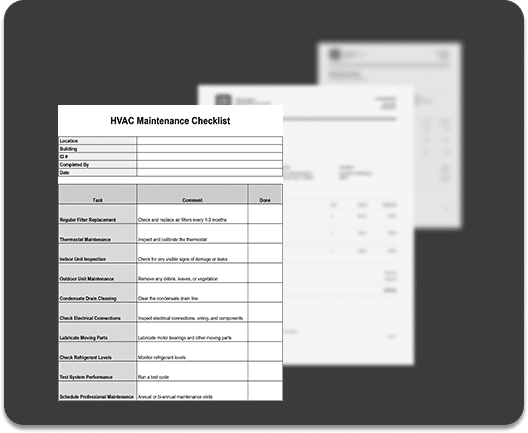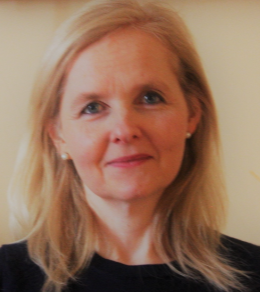UKG unveiled a slew of product and organizational initiatives including the appointment of a new CEO as the HCM and workforce management applications powerhouse lays the groundwork to more than double its revenue to $10 billion by the end of the decade, compared with $4 billion in projected sales in 2023, which is a year ahead of original projections.

For its second quarter of FY22, UKG’s total revenue exceeded $895 million with subscription sales excluding float growing 16% year over year. In 2021, UKG helped direct $140 billion worth of payrolls, benefits, taxes to different government agencies for reporting and the float figure is on track to surpass $200 billion in FY22.
The initiatives mark a new beginning for the company that has gone through a series of expansion moves including the 2020 merger between Ultimate Software and Kronos to form UKG, followed by a successful integration in the midst of the pandemic that saw the addition of over 4,600 new employees to its current headcount of close to 15,000.
However, UKG also experienced a ransomware attack in December 2021 that left about 2,000 legacy workforce management customers – less than 3% of its installed base – without their time and attendance automation. Ultimately UKG restored these Kronos Private Cloud solutions in less than 10 weeks, a process that its executives call cathartic because it rallied the entire organization behind a common cause to defend itself by staging a decisive comeback on behalf of its customers.
Then came the February 24 Russian invasion of Ukraine where UKG has employed dozens of developers, another challenge that prompted the company to reorganize its global operations by investing heavily in new and existing core competency centers like Canada, India and Uruguay. Some of its Ukrainian developers have relocated, while other have chosen to stay behind.
All these developments have put UKG in a unique position to cement its lock in the workforce management applications market where it remains the No. 1 leader, while expanding heavily in human capital management with new opportunities in small business and midmarket for Core HR, payroll and time and attendance in a showdown against hundreds of global and indigenous HCM and WFM providers. All of them are vying to redefine the future of work in the post-pandemic era where job outlook, cultural and racial diversity issues are on a collision course compounding a hyperinflationary environment dotted with a dizzying array of geopolitical risks like environment and social governance as well as energy supply shocks.
Against this backdrop is the appointment of Chris Todd, current president of UKG, as the new chief executive officer, effective July 1, 2022, after joining Kronos in 2007 to run its services division. Aron Ain, who has led the company as CEO since 2005, characterizes the transition as strength to strength, citing Todd’s tremendous contributions to UKG’s successful merger and his ability to shore up support across the organization as well as its 70,000-plus customers and some 45 million users over the past few years as part of a well thought out succession plan that left no room for errors.
Ain, who helped build Kronos into the No. 1 vendor in the workforce management applications market, will become its executive chairman next month as he directs his assistant to clear his calendar for July and August with the only stipulation of spending quality time with customers and his family going forward.
A self-proclaimed introvert who is married to a social worker and emotionally connected to his four daughters, Todd is well-liked at UKG but he stands in contrast to the outgoing nature of Ain who would head out for a dinner with friends and customers even after spending 12 hours at work. When asked whether there are business leaders he would like to emulate, Todd simply responds with the promise to assemble the smartest executive team he could find as he establishes his own style to be the best CEO he can muster.
One of his first moves is to buy a condo in Florida to be closer to his product team and other executives including the new head of HR who work out of UKG’s main offices near Miami, in addition to his homebase in Lowell, MA, where other UKG executives in legal, finance and strategy reside. By maintaining dual headquarters in Weston and Lowell, the structure has served UKG well, said Todd, adding that the lockdowns during the pandemic have demonstrated the fact that remote work should not be seen as a hindrance or deterrence to any meaningful collaboration inside or outside an office setting. If anything, the pandemic leveled the playing field as far as internal communications, “eliminating those hallway conversations” that have the potential to derail a merger’s progress, and UKG was able to go full steam ahead with its merger in much of 2020, Todd said.
For a software developer that is instrumental in reshaping the world of HR and workforce management through automation and business process improvement, the UKG’s ability to prevail during the pandemic and its rebound from the ransomware attack underscores traditional workstyles and business practices could soon give way to using Slack and other AI, machine learning and collaboration tools for a variety of tasks from hiring to retiring for better employee engagement.
Equally important are the life-aware experiences including benefits, HR service delivery, position automation, career design visualization, pay equity dashboard and other handy tools that reinforce an employer’s commitment to diversity, inclusion, belonging, all of which are either available today or being rolled out in the coming months, according to Hugo Sarrazin, the new chief product and technology officer of UKG who joined the company in October 2021 after spending 26 years building best practices and software tools at McKinsey.
Todd realizes that the new world that UKG faces carries its own risks. For one thing, inflationary pressures have forced UKG to protect its margins by not deviating too much from its list prices, which have been revised upward recently.
Similarly, UKG is doubling down on its UKG Ready suite for companies with under 200 employees in North America, a segment that has traditionally been treated almost like a captive audience by vendors like ADP, Ceridian, Paychex, Paycom and others that saturate tier-2 and 3 markets with a smorgasbord of BPO, PEO and other outsourcing and software models along with their aggressive pricing and extensive field operations.
Downplaying the possibility of a flood of business failures among these SMBs in a souring economy, Jessica Griffin, UKG vice president of product management, said the FY23 plan is to more than double its salespeople to 140 responsible for UKG Ready, while capitalizing on incremental opportunities through resellers and international partners.
Todd said another catalyst for UKG to more than double its size is to leverage an installed base of at least 10,000 customers running legacy WFM apps like Telestaff and more recently acquired Ascentis that came with more than 4,000 customers, as well as loyal accounts using products like Workforce Central. A widely used script at UKG is to flip these long-standing and/or recently acquired customers to its most current releases by giving them ample discounts and incentives from 24×7 support to unlimited training as well as domain expertise and industry-specific solutions that fare well against other providers. The script is particularly important in the context of its One UKG Platform positioning.

Once UKG succeeds in upgrading and migrating these customers to its latest releases, Todd estimates that the recurring revenue stream could amount to billions of dollars in incremental sales in the coming years.
Flipping existing UltiPro customers to a Public Cloud environment like Google Cloud Platform (GCP) is another top priority. Even though it will be years before UKG can drive better performance and value for these customers, including thousands that are expected to migrate and upgrade to GCP from their current use of UltiPro, which is often derided by its competitors as the poster child of first-generation Cloud HCM applications, UKG said all new customers of UltiPro have already started taking advantage of GCP
The last few years serve as a reminder of the risks and rewards of becoming the category leader like UKG. Todd said after doubling its size to $3 billion following the merger, inquiries from major systems integrators like Accenture, Deloitte and PWC began to pour in all wanting to expanding their partnerships by scaling out dedicated practices to focus on UKG offerings.
It also represents a Catch-22 moment. UKG would not have grown to be its current state had it not pursued a series of acquisitions every few years. Similarly, UKG would not have found itself an obvious ransomware target with many moving parts that gave cyberthieves plenty of backdoors to exploit the overextended Kronos Private Cloud commitments to its hosted customers that otherwise would have been eliminated through automatic updates and superseded releases.
It remains to be seen to what extent is Todd is going to modify the traditional approach of holding onto its long-term customers with the eventual goal of flipping them. One thing is clear – UKG has learned the hard lesson of refraining from accommodating customers and acceding to their demands at all costs because the stakes are now too high for leaving its entire organization unnecessarily exposed to external forces and bad actors that it has no control over.
Similar to UKG’s recent decision to place its IT and security operations under the purview of its product team, the power to say no may perhaps represent the best antidote to pleasing none despite one’s good intentions to please everyone.
List of UKG Customers
Source: Apps Run The World, June 2022

















